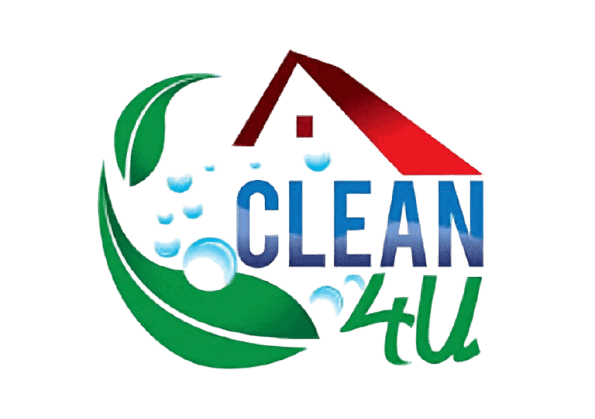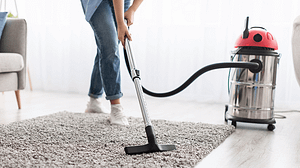Many of you ask about costs for spring cleaning and deep cleaning in Ireland; typical ranges are €80–€200 for a standard clean and €250–€500+ for a full deep clean depending on size and condition. Your final price depends on hours, number of cleaners, and specialist treatments. Be aware of mould, allergens and water damage that increase costs and health risks, while professional deep cleans can deliver better air quality and higher resale appeal.
Understanding Spring Cleaning
Definition of Spring Cleaning
You’ll find that spring cleaning is a targeted, seasonal deep clean that goes well beyond your weekly routine: think window washing, oven and fridge degreasing, carpet and upholstery steam-cleaning, descaling bathrooms and kettles, plus a focused declutter of attics, wardrobes and storage spaces. When you hire a professional in Ireland this often appears as a one-off “deep clean” or spring refresh and is priced differently from regular cleaning contracts.
Costs vary by scope and property size; expect professional hourly rates of roughly €25–€40 per cleaner, flat-rate deep cleans around €120–€300 for a typical 1–3 bed property, while larger houses or end-of-lease cleans can exceed €400. Remember to include consumables and disposal: cleaning supplies are usually €20–€60, carpet machine hire €50–€100, and bulky-waste removal can add €50–€150 to your bill.
Importance of Spring Cleaning
Beyond appearance, you’ll get measurable health and maintenance benefits: a proper deep clean removes built-up dust and allergens and helps prevent mould in Ireland’s damp climate—mould remediation, if left unchecked, can cost between €500–€3,000. Professional methods like hot-water extraction for carpets and HEPA-filter vacuums extract grime DIY methods often miss, extending the life of surfaces and soft furnishings.
Your budget perspective changes when you factor in avoided costs and resale/rental outcomes: spotting small repairs during a deep clean can save you from larger replacement expenses (replacing stained carpet can run €400–€1,000 versus a deep clean at €120–€300). Hiring insured, experienced cleaners may cost a bit more but reduces risk and often speeds up property sales or tenancies.
On safety and specialist work, you should factor in PPE and ventilation for strong DIY chemicals, and expect higher charges for tasks requiring tradespeople—gutters and chimney clearances typically start at around €100–€250. Using professionals who follow COSHH guidance and hold public liability insurance mitigates those health and liability risks while delivering a more thorough result.
Factors Influencing Spring Cleaning Costs
Prices vary because several variables change how long a job takes and what equipment or chemicals are needed; in Ireland you’ll often see a standard clean from around €12–€25 per hour per cleaner, while specialised work pushes the deep cleaning cost much higher. Local demand (Dublin versus smaller towns), time of year, and required certifications for hazardous jobs all feed into the final quote, so expect a simple apartment clean to cost €80–€150 and a full 4‑bed deep spring clean to land between €200–€450.
- Size of the Property
- Scope of Cleaning Services
- Level of Thoroughness Required
- Location, access and travel time
- Add‑ons (ovens, carpets, windows, mould remediation)
Size of the Property
If you have a one‑bed city apartment you’ll generally pay far less than for a three‑ or four‑bed family home because cleaners bill by estimated hours or rooms. For example, a 50–60 m² one‑bed may take 2–3 hours for a standard spring clean, while a 120–200 m² four‑bed can take 6–10 hours and often requires a two‑person team; that difference alone can double or triple your cost.
Square metres and room counts matter more than advertised property type — a compact 3‑bed with small rooms costs less than an open‑plan 2‑bed of the same footprint. You should give measurements or photos when requesting a quote so the company can estimate labour accurately and avoid unexpected surcharges.
Scope of Cleaning Services
Basic spring cleaning covers dusting, vacuuming, mopping, and kitchen/bathroom surface work, but add‑ons change the math: oven cleaning typically adds €30–€60, carpet cleaning €50–€120 per room, and internal window cleaning €5–€12 per pane depending on access. If you ask for upholstery or specialist chemical descaling, expect those items quoted separately rather than included in a flat rate.
Commercial rates vary by package: many providers offer a standard, a deep, and an end‑of‑tenancy option — the latter often includes inside cupboards, behind appliances and full bathroom descaling which can increase time by 50–200%. Location matters too; in Dublin you may pay a premium of 10–25% versus regional towns for identical scopes.
For accurate budgeting, list specific tasks (oven, inside windows, skirting boards, grout, carpet shampoo) up front since each item alters the total; cleaning firms will often price per add‑on or supply a fixed price when you provide a room‑by‑room checklist.
Level of Thoroughness Required
A standard clean typically targets visible dirt and routine maintenance, whereas a deep clean goes into drawers, behind appliances, and tackles scale, limescale and grout — work that commonly multiplies labour time by 1.5–3×. In hard‑water areas of Ireland, for instance, bathrooms with heavy limescale require descaling agents and additional elbow grease, so expect a substantive price jump.
Specialist issues such as persistent mould, infestations or historical nicotine staining require trained staff and sometimes external disposal, which can push costs into specialist remediation brackets; a small mould removal job might start at €200 and rise steeply with area and remediation complexity. Chemical use and health risks mean reputable companies may charge a premium to deploy certified technicians.
Knowing these variables lets you decide which tasks to prioritise and how to compare quotes so your chosen package matches your budget and the level of clean you actually need.
Average Costs in Ireland
National Averages
Across Ireland, a standard spring deep clean typically falls into predictable bands: for a two-bedroom apartment you can expect roughly €120–€200, a three-bedroom house around €180–€350, and larger homes from €250 up to €500+ depending on size and condition. Many firms quote by the hour too, with national hourly rates generally sitting between €18 and €30 per hour; one-off deep cleans usually cost more per hour than regular weekly cleans because they include intensive tasks.
Your final bill often depends on scope — internal window cleaning, heavy oven degreasing, descaling of bathrooms and kitchen, and detailed skirting-board and radiator cleaning are common inclusions. Expect add-on charges for specialist jobs: oven cleaning €40–€80, carpet or upholstery shampooing €25–€60 per room, and end-of-tenancy certification or stain treatments priced separately.
Variations by Region
Prices vary noticeably by location. Dublin and its commuter belt are the priciest markets: hourly rates commonly reach €25–€40, and a deep clean for a three-bedroom property can hit €250–€500. In contrast, counties in the west and north tend to be cheaper — you’ll often find hourly rates of €15–€25 and one-off cleans for similar properties closer to the lower national bands.
Rural areas can offer lower base rates, but you should factor in travel or minimum-job fees; many companies add a travel surcharge of €10–€30 if your property is outside their usual service area, which can erase some of the apparent savings.
Seasonality also affects regional pricing: during peak spring weeks demand can push prices up by 10–20%, and specialist jobs (mould remediation, heavy grease extraction) are often quoted separately and can be substantially more expensive — plan and book early if you want the best rates.
Professional vs. DIY Cleaning
Cost Comparison
You can expect a professional deep spring clean in Ireland to range broadly: small flats often start around €120–€200, typical 2-bed homes around €150–€300, and larger 3‑4 bed houses commonly fall between €250–€400 depending on location (Dublin tends to be at the higher end) and add‑ons like oven or window cleans. If you hire by the hour, rates are generally €25–€40 per cleaner per hour, and specialised treatments (mould removal, carpet shampoo) add extra fees.
If you go DIY, direct outlay for cleaning products and rental equipment usually sits between €20–€120 — for example, a steam cleaner hire €30–€60 per day and concentrated detergents €10–€30 — but you should factor in your time: a full deep clean can take 8–16 hours for a family home, so value that against what you’d pay a professional.
Cost comparison table
| Professional | DIY |
|---|---|
| Typical price: €120–€400 depending on size and extras | Upfront product/equipment cost: €20–€120 |
| Hourly: €25–€40 per cleaner | Your time: 8–16 hours for a house (opportunity cost) |
| Includes labour, some supplies, and insurance | May require hiring machines (steam/carpet cleaners) at extra cost |
| Specialist tasks (mould, upholstery) cost more | Specialist results may require hiring professionals anyway |
Pros and Cons of Each Approach
You get consistency and speed with professionals: teams finish faster and often achieve better deep-clean results on carpets, grout and ovens because they have commercial-grade equipment and experience. On the other hand, you might pay a premium for convenience and add-on services, and scheduling during peak spring months can be constrained in cities like Dublin.
If you clean yourself, you control products, timings and eco choices, and you can spread the work to reduce single-day intensity. However, you risk using incorrect chemicals or tools — for example, mixing bleach and ammonia is a dangerous practice — and stubborn issues like ingrained carpet stains or heavy limescale often demand professional equipment.
Pros and cons table
| Professional | DIY |
|---|---|
| Pros: Faster completion for whole-house deep cleans | Pros: Lower direct monetary cost for small jobs |
| Pros: Access to industrial equipment and specialist treatments | Pros: Control over products and eco-friendly options |
| Cons: Higher cost, especially for large homes or extras | Cons: Time-consuming — 8–16 hours typical for full deep clean |
| Cons: Potential scheduling delays in busy periods | Cons: Risk of incorrect product use or damage to surfaces |
| Pros: Insured work and professional guarantees | Pros: Flexible timing — you can spread tasks over weeks |
| Cons: Less control over products used unless specified | Cons: May need to hire equipment for tough jobs, raising costs |
| Pros: Better for post‑renovation or heavy soiling | Cons: Physical strain and ladder/chemical safety risks |
| Cons: Extra charges for ovens, blinds, windows, upholstery | Pros: Ideal for regular upkeep between professional visits |
When deciding, weigh what you value most: if you have tight time constraints, allergies, or significant post‑renovation dirt, paying €250–€400 for a professional deep clean can be cost‑effective; if you have the time and only need surface refreshes or eco‑friendly control, DIY with targeted equipment hire can keep your bill under €120.
When to choose which
| Choose Professional | Choose DIY |
|---|---|
| Busy schedule or limited time | Small apartments or quick spring refreshes |
| Post‑renovation or heavy soiling | Ongoing maintenance between deep cleans |
| Allergies or asthma — professional HEPA vacuums | Strict control over eco products and scents |
| Need for insured, guaranteed work | On a tight budget and willing to invest time |
| Stubborn stains, carpets, upholstery | Comfortable using ladders and chemicals safely |
Additional Services and Their Costs
Many spring-cleaning quotes list a base deep clean and then add-on services that can significantly change the final price. For a typical Irish semi-detached house, expect add-ons to range from small extras of €20–€50 to specialist jobs that push the total by €200–€500; companies often give package discounts when you combine several extras. If you want to keep costs predictable, ask for line-item pricing for each service and a bundled rate for multiple add-ons.
Prices vary by access, property size and required equipment, so get written estimates. For example, a standard deep clean might cost €120–€250, but adding three bedrooms of carpet cleaning and exterior windows can increase the bill by €150–€350 depending on the provider and any stain-removal work.
Carpet and Upholstery Cleaning
Carpet cleaning is usually priced per room or per square metre: expect roughly €3–€6 per m² or about €25–€60 per average room in Ireland, while upholstery is commonly €20–€60 per seat depending on fabric and soiling. For a three-bedroom home with fitted carpets, professional hot-water extraction (steam cleaning) typically adds €100–€250 to your spring-cleaning invoice; stubborn stains, odour treatments or pet-hair removal are charged extra, often €15–€50 per treatment.
You’ll see the most value from professional cleaning when you consider longevity and health: proper steam cleaning removes dust mites and deep allergens and can extend carpet life. At the same time, be aware that DIY or inexperienced cleaners can over-wet fibres or use unsuitable chemicals, which can damage delicate upholstery, so specify fabric types and ask about drying times before booking.
Window and Gutter Cleaning
Window cleaning prices depend on height and access: for a standard two-storey house expect €40–€120 for a full internal and external clean, with single panes sometimes charged at €3–€7 each; conservatory or high-rise glazing pushes costs higher. Gutter cleaning is commonly €80–€200 for an average house in Ireland, but if scaffolding or specialist rope access is required, prices frequently climb to €250–€500.
Combining window and gutter work often produces savings — many companies will offer a bundled rate (for example €120–€300) rather than separate line items — and clearing gutters before heavy rain can prevent water ingress that leads to expensive repairs. Because gutter work involves heights and ladders, professionals use safety harnesses and insurance-backed methods; this work can be dangerous if you attempt it yourself.
For planning, schedule gutter clearing at least twice a year (spring and autumn) and full external window cleans annually; for tall or hard-to-access properties, ask providers about reach poles and water-fed systems which avoid ladders but may incur a premium. If you’re considering extra protection, installing gutter guards typically costs in the region of €5–€25 per metre depending on type and will reduce cleaning frequency over time.
Tips for Budgeting for Spring Cleaning
Break the job down by priority rooms and tasks so you can allocate funds where they make the biggest difference: kitchens, bathrooms and carpets usually account for the highest deep cleaning cost spring cleaning. Expect a professional deep clean for a small flat to start around €80–€120, while larger houses commonly range from €180–€350 depending on hours, number of cleaners and added services like oven or window cleaning. You should set aside a buffer of 10–15% for unexpected work such as stain removal or mould treatment.
- Get at least three written quotes to compare line‑by‑line costs and included tasks.
- Prioritise one or two high‑impact areas (oven, bathroom grout, carpets) if your budget is limited.
- Consider a staged approach: DIY general tidy, pay for a professional deep clean only for high‑use rooms.
Splitting the clean into phases can reduce immediate outlay — for example, book a full kitchen and bathroom deep clean now and schedule bedrooms later. You can often save by booking outside peak weekend slots or combining services into a package rather than paying per task.
Setting a Realistic Budget
Estimate costs using either hourly rates or flat fees: many Irish companies charge around €20–€35 per hour per cleaner, while flat deep‑clean jobs are commonly quoted between €80 and €350 depending on size and scope. Tally the number of rooms, special tasks (oven, carpets, windows) and materials so you know whether a quoted price covers everything or if extras will be charged.
Factor in ancillary costs such as specialised cleaning products, disposal fees for bulky waste and any VAT or regional levies; adding a 10–15% contingency prevents budget blowouts if the cleaner finds more work than anticipated. When you compare quotes, normalise them to a per‑hour or per‑room metric so you can see which gives the best value for the specific tasks you need.
Finding Affordable Service Providers
Request itemised quotes and ask which tasks are included in the base price — companies that bundle oven and window cleaning into a spring package can be cheaper than paying add‑ons individually. Check online reviews and local community groups for recent prices and service quality: comparing three providers typically reveals a realistic market rate and can save you 10–20% by avoiding overpriced offers.
Negotiate on scope rather than rates: removing low‑value tasks (e.g., dusting rarely used rooms) or agreeing to provide basic supplies can lower the quote. Verify insurance and liability cover so you don’t absorb repair costs if something is damaged during a deep clean; lack of insurance is a dangerous red flag.
Ask each provider for a written, itemised quote, check for discounts if you book recurring cleanings, and request before/after photos or references from recent clients in similar properties to yours. After you compare itemised quotes and confirm insurance and scope, book the provider that best matches your budget and standards.
To wrap up
To wrap up, the cost of spring cleaning in Ireland varies with the scope of work, the size of your home, and any specialist tasks you need. Routine spring cleans for small flats often start from around €60–€120, while full deep cleans for larger houses can commonly range from about €120–€350 or more when ovens, windows, carpets or single-room intensive work are included. Hourly rates and fixed prices both exist, so your final bill will depend on whether you choose a one-off deep clean or a scheduled service agreement.
To get the best value, obtain a few itemised quotes, confirm what each service includes, and check that the provider is insured and offers clear timelines. If you want to lower costs, consider regular maintenance cleaning between deep cleans, book outside peak times, and ask for a written checklist so you know exactly what you are paying for.
What is the typical price range for spring cleaning in Ireland?
For a one-off spring clean costs vary by size and intensity. Typical flat-rate ranges: small apartment (studio/1-bed) €80–€150, 2–3 bed house €150–€300, 4+ bed house €250–€450+. Hourly rates for standard cleaning are commonly €15–€30 per cleaner; deep-clean or specialist companies often charge €25–€45 per hour per cleaner. Dublin and larger urban areas tend to sit at the higher end of these ranges. Many companies also apply a minimum booking fee (e.g., 2–3 hours) or offer a fixed-price package for whole-home deep cleans.
What factors influence the cost of a spring or deep clean?
Main cost drivers are property size and layout, current level of dirt/grime (end-of-tenancy or neglected homes need more time), specific tasks required (oven, fridge, windows, blinds, inside cupboards, bathrooms with limescale), number of cleaners needed, and whether specialised equipment or products are required (carpet shampooing, power-washing). Location, time of booking (weekends/public holidays can cost more), access constraints, insurance/credentials of the provider, and add-ons (oven cleaning €40–€100, carpet cleaning €30–€60 per room) also affect price. Companies may charge extra for removing large amounts of clutter or hazardous waste.
How can I get an accurate quote and keep spring cleaning costs down?
Get written quotes from at least two reputable cleaners and provide photos or a room-by-room list so quotes reflect the actual scope. Ask whether the price is hourly or a fixed package and what’s included/excluded. Reduce hours by decluttering and doing light tasks beforehand, bundle services (recurring cleans often come with discounts), book midweek, and compare reviews and insurance coverage rather than choosing solely on price. Negotiate a fixed price for defined tasks to avoid unexpected extra charges and request itemised invoices for clarity.






